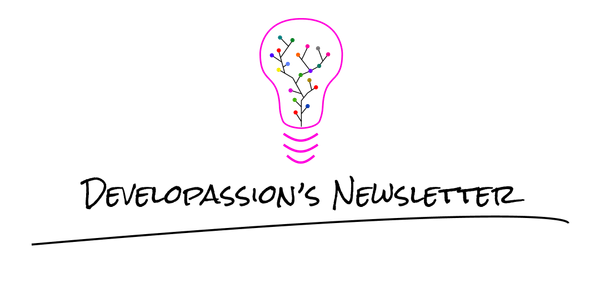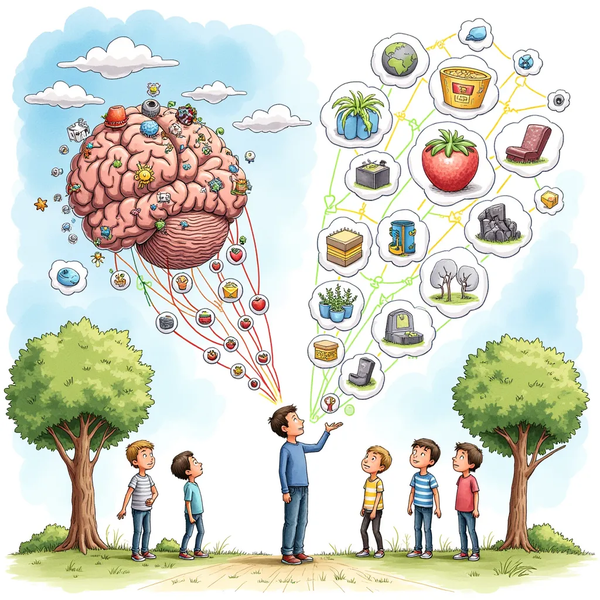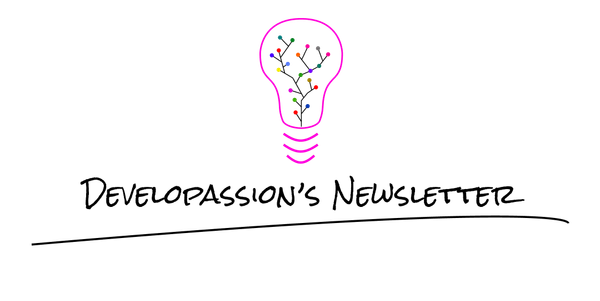On the importance of non-goals
Goals are key to progress, but non-goals are complementary, and help go in the right direction. Here's why.

Oftentimes, and rightfully so, productivity experts put a lot of emphasis on goals and priorities. In this article, I want to explore an often overlooked element in personal/career plans: non-goals.
Introduction
We are all pretty familiar with goals. Those are concrete objectives we want to reach, whether professionally or personally. We are driven by those. They set the direction in which we want to move towards. They can be hard to define clearly, and deserve a lot of attention. On the other hand, non-goals are a bit less obvious, but deserve your attention as well, as they can make a huge difference in different contexts.
“The difference between successful people and really successful people is that really successful people say “no” to almost everything.” — Warren Buffet
Clear goals and priorities help focus on what really matters. But while making (real) progress requires clear goals and priorities, non-goals are also very important/impactful. Let's explore this concept and its benefits for productivity (and more).
What are non-goals?
Non-goals can actually be as important/impactful as goals. While goals set the broad direction to go towards and clarify the "why", non-goals help define the direction more precisely, minimizing "waste", avoiding "negative" results, and maximizing success/happiness/well-being. This is true in various contexts: life in general, family, finance, personal development, career evolution, project management, product development, etc.
Simply put, non-goals are all about clearly defining what you don't need/want. They're about being clear about the paths you're not willing to walk, the risks you're not willing to take, and the results you're not interested in. Non-goals are all about avoiding specific experiences/tasks/efforts/challenges/worries/risks/end results. Non-goals are an excellent way to define clearer priorities and be intentional about what we don't want or need.
Another way to think about non-goals is as constraints. Non-goals put lines, barriers and limits. Those are forbidden paths, rejected end results, etc.
Here are some examples:
- Life situations you don't want to be in
- How you don't want to end your life
- Things you never want to do
- Things you need to avoid if possible
- Habits you never want to have
- Relationships you don't want
- People you don't want to be like
- Work you don't want to do
- Career evolution you want to avoid
- Roles you don't want to take on
- Scope you don't want your projects to include
- Things you don't want to spend money on
- Status you don't want to reach
- Freedom you don't want to lose
- Health issues you want to avoid
- Mistakes you don't want to repeat
- ...
Here are a few of my own non-goals:
- I don't want to stay in an unhappy relationship for too long
- I don't care about status games
- I'm not looking to be super wealthy. I just want enough to sustain my lifestyle
- I don't want to remain an employee. I want to set my own path
- I don't want to do freelancing anymore. I doesn't bring me happiness
- I don't want to lose the freedom I have
- I don't want to trade my time lightly
- I don't want to be an absent father
- I don't want to weigh more than 80kg
- I don't want to be tired all the time
- I never want to stop writing
- I don't want to remain stuck in my comfort zone
- I don't want to feel lonely
- I don't want to live an empty life
- I don't want to go through another burn out
- I don't want to be bored at work
- I don't want to doomscroll
- I don't want to just be a consumer. I want to be a creator
- ...
There are countless contexts in which non-goals are useful to think about. Let's look at how you can set those.
How to set non-goals
Just like setting goals, setting non-goals is more art than science. IMHO, all it really requires is taking time to think about those whenever setting/reviewing your goals. That being said, here are a few questions you can use to help you define those:
- What is too much?
- What is not enough?
- What should not happen?
- What should be avoided?
- What would not help?
- What would be wasteful?
- What would be stupid?
- What would be dangerous?
- What would make you sad?
- What would make you suffer?
- What risks are unbearable?
- What situations are not ideal?
- What experiences are detrimental to your success/wellbeing?
- What end results are not necessary?
- What end results would be catastrophic?
- What needs/can wait?
- What can't you afford?
- ...
Answering such questions will help you express your non-goals.
In addition, whenever you define a goal, you should think about the associated non-goals. For instance, if you decide to run a semi-marathon, you can also set the non-goal of doing it under two hours. In that case, you would have a clear goal, but with less emphasis on performance. Of course, this is a contrived example. In practice, if you knew you could do it under that time, you would unless it would mean risking injuries or jeopardizing your chances of reaching your goal.
Note that non-goals should be as concise and as clear as possible. They should be documented and kept on the top of your mind at all times.
What are the benefits of defining non-goals?
As I've tried to argue so far in this article, defining clear non-goals has many benefits. Here are a few of those:
First, non-goals increase clarity. While a clear goal defines a clear target to reach, it doesn't necessarily dictate much about the path(s) to take to get there. For instance, in the context of a project, some paths are clearly worse than others (on various dimensions, such as scope, budget or time). Setting non-goals helps be much clearer about the paths/end results to avoid, and the rationale behind those.
Non-goals are also beneficial for improving transparency and setting clear expectations. For example, a project that has documented clear goals sets clear expectations for its team members and users/customers. One project that comes to mind when I think about this is the TypeScript programming language. The team behind it has documented their non-goals for the project. Since those are known, it's easier for team members to know what to avoid, and for end users (developers in this case) to know what not to expect.
Importantly, non-goals help a ton with decision-making. When you are confronted with two or more choices, having clear goals and non-goals will help you make the right choice. If you know where to go and what to avoid, you can maximize your chances of success/happiness. Non-goals help reduce doubts and uncertainty, simplifying decision-making. For instance, knowing that I don't want to feel lonely, I know that I have to embrace opportunities to meet and be with other people. It may sound stupid, but it makes a real difference. Without clearly defined non-goals, emotions, state of mind and shortsighted priorities can push you to make bad decisions.
Non-goals help focus on what matters and make meaningful progress. When you are not clear about the paths/results to avoid, you wander a lot more and end up in places you don't really want to be at. With clearly defined goals and non-goals, you can take the right turns along the way. Taking product development as an example, you can avoid implementing features that would take your team's energy/focus away from what your customers really care about/need.
As I mentioned earlier, since non-goals are constraints, they are also really beneficial for creativity. When you define clear constraints/boundaries/limits, you find different solutions to the challenges in front of you.
At a personal level, I believe that non-goals are closely related to the Japanese concept of Ikigai. Finding what lies at the intersection of what you love, what the world needs, what you're good at and what you can get paid for can help you define goals and non-goals that will give you a real sense of purpose, and will help you grow.
Non-goals are also beneficial for alignment. When you have clearly defined personal non-goals, you can be more aligned with yourself when making decisions. Similarly, coming back to the points about clarity/transparency, when a project/team has clearly defined/documented non-goals, everyone can better collaborate and go in the same direction.
Finally, non-goals can be great for reducing needless pressure and saving time/resources/motivation. Coming back to the example I gave about running a semi-marathon, removing the performance aspect from the equation completely changes the way you approach that goal (both before and during!).
And those benefits are just the tip of the iceberg.
When to set or revisit non-goals
You can and should regularly revisit your goals and non-goals. Things change all the time, which is why revisiting your plans is so important. It's all about being agile.
I usually set and review my personal/career-related non-goals during my periodic reviews. About every six months, I look back and forward. I evaluate my progress, recent changes, and re-evaluate my goals and non-goals. This helps me both personally and professionally. In addition, I also set and review those after big events (positive or negative) happen.
For project work, I do the exercise at least once when the project starts, every time a major milestone is reached, as well as when roadblocks appear. In that context, I often consider non-goals as the next thing that we could do. In that sense, setting project non-goals can be seen as a way to narrow good ideas down.
Conclusion
In this article, I've shared some ideas about the concept of non-goals. To me, those are as important as goals. They have a ton of value, and deserve a lot more attention than they generally do.
So, what are your non-goals?
About Sébastien
I am Sébastien Dubois. You can follow me on X 🐦 and on BlueSky 🦋.
I am an author, founder, and coach. I write books and articles about Knowledge Work, Personal Knowledge Management, Note-taking, Lifelong Learning, Personal Organization, and Zen Productivity. I also craft lovely digital products . You can learn more about my projects here.
If you want to follow my work, then become a member.
Ready to get to the next level?
To embark on your Knowledge Management journey, consider investing in resources that will equip you with the tools and strategies you need. Check out the Obsidian Starter Kit and the accompanying video course. It will give you a rock-solid starting point for your note-taking and Knowledge Management efforts.
If you want to take a more holistic approach, then the Knowledge Worker Kit is for you. It covers PKM, but expands into productivity, personal organization, project/task management, and more:
If you are in a hurry, then do not hesitate to book a coaching session with me:





